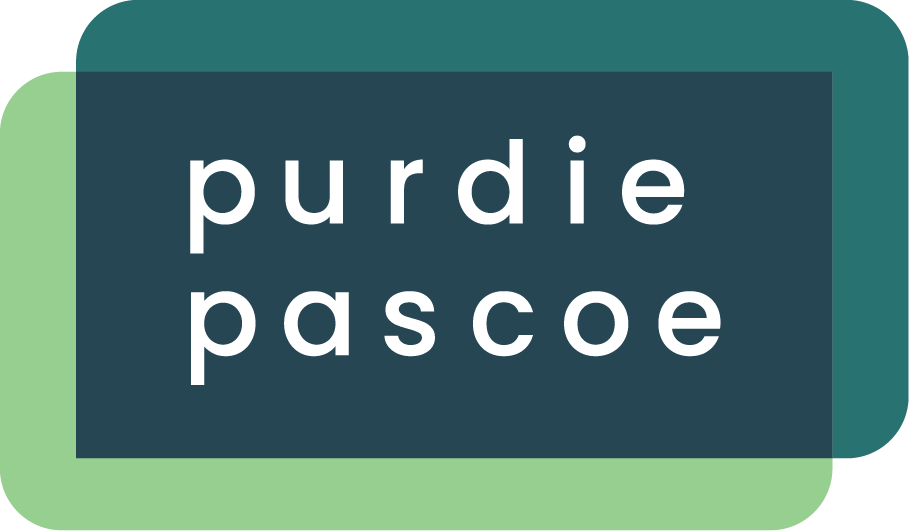The MedTech Difference: Insights from Industry Leaders
As a specialist agency dedicated exclusively to the medical technology sector, it’s no surprise that the theme of our recent all company away days was, quite simply, ‘MedTech’.
One of the standout sessions was a panel discussion, in which Sabera Hyderally, Purdie Pascoe’s Head of US MedTech, facilitated an engaging, honest, and thought-provoking conversation with experts from across the MedTech and Diagnostics industry. The discussion explored how MedTech differs from other sectors, particularly pharmaceuticals, and what these differences mean for how we approach market research, innovation, and patient engagement.
Understanding the MedTech landscape
One of the first topics discussed was the sheer complexity of the MedTech ecosystem. Compared to pharmaceuticals, the MedTech sector involves a significantly wider array of stakeholders. From healthcare providers, biomedical engineers, IT and hospital procurement teams to patients, caregivers, regulatory bodies and payers, the number of voices influencing the development and adoption of medical technology is far greater and influence variable across different geographies.
An important theme to emerge from the discussion was the evolving role of patients in the MedTech space. Today’s patients are more informed, more empowered, and more involved than ever before. Whether it’s through wearables that track vital signs in real-time or apps that allow patients to manage chronic conditions, the landscape has shifted.
This evolution demands a different kind of research. It’s no longer enough to understand just the clinical or technical aspects of a device. Researchers must also explore how patients feel, what they value, and what behaviours influence their health decisions. Qualitative research, understanding the patient journey from information sourcing to criteria that impact consideration and trial, plays a critical role, providing depth, emotion, and context that data alone cannot capture.
The strategic role of market research
Throughout the discussion, it was clear that market research plays a crucial strategic role in the MedTech space. It’s not just about gathering data, it’s about guiding business decisions, shaping product development, and ensuring that the voice of the customer is embedded throughout the process.
To do this effectively, researchers must have a deep understanding of the MedTech development lifecycle. It’s not enough to apply general methodologies; researchers need specific knowledge of how products are brought to market, what success looks like, and what kinds of insights will truly move the needle.
Importantly, the research process must be collaborative. Engaging all relevant stakeholders early, from both client and agency, which can significantly improve the quality and impact of research. Clients benefit most when agencies are proactive, assertive, and willing to ask for background materials, clear objectives, and ongoing input. As one panellist put it, “If you fail, I fail too”, a sentiment that highlights the importance of working as true partners, with aligned goals.
Adapting research techniques for MedTech
MedTech sits at the intersection of science, engineering, and user experience, research approaches often need to be more nuanced and multi-layered. Conjoint analysis, TURF analysis, and pricing studies are widely used in this space, but they tend to be more complex than in pharma due to the nature of the products and buying processes. Usability testing is also a major component, ensuring that devices are not only effective but also intuitive and safe to use in real-world environments.
Face-to-face research, while far less common post-pandemic, remains valuable in certain contexts. Some participants noted that in-person interactions can remove barriers that sometimes exist over screens, leading to richer insights, particularly when discussing deeply personal or technical topics.
AI and advanced analytics: Tools, not replacements
No discussion about the future of market research would be complete without addressing the role of artificial intelligence and advanced analytics. The panel was unanimous in seeing AI as a helpful tool, but not a replacement for traditional research methods.
AI can increase efficiency, particularly in analysing open-ended responses, summarising trends, or enhancing report writing. It can support faster turnaround times and help generate impactful visuals and storytelling. However, there was caution against placing too much trust in AI-generated insights without human validation. The technology is promising but still limited, due to inaccuracies and a lack of contextual understanding remain concerns.
Some discussion focused on the use of synthetic patients, which could one day be used for concept testing or persona development. While the idea is intriguing, the consensus was that synthetic data isn’t yet reliable enough to replace real patient insights. It may serve as a supplement in the future, but for now, it’s not a substitute for genuine human experience.
Transparency around the use of AI was another key point. Clients are increasingly requesting clarity on when and how AI tools are used, especially when data privacy is involved. Agencies and vendors must be upfront and responsible in how they incorporate AI into their processes.
Conclusion
‘The MedTech Difference’ session highlighted everything that makes this sector so compelling. From the complexity of stakeholder ecosystems to the rapid pace of digital transformation, MedTech presents unique challenges that demand a strategic, thoughtful, and patient-centric approach to market research.
This session reinforced why Purdie Pascoe continues to be focused on MedTech industry, and why our researchers feel so passionate about the work we do. As an agency, we remain committed to evolving alongside our clients, asking better questions, designing smarter research, and keeping the customer at the core of everything we do.

